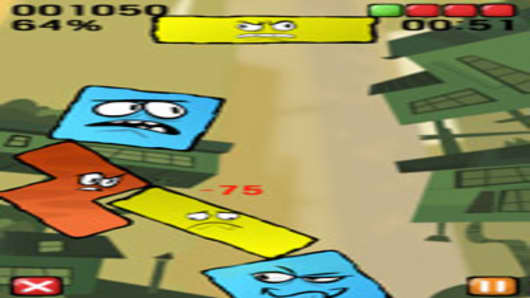"What’s happening with the iPhone is going to cause big changes in the gaming industry," says Billy Pidgeon, an analyst with Game Changer Research. "I would hope that eventually other device manufacturers would offer competing services. I’d expect to see offerings from Nokia, Samsung and maybe even Microsoft for the Zune."
Both Activision and Take Two Interactive Software , however, have shied away from the system, as competitors have found success rolling out a mix of new and classic properties and independent developers have introduced a number of innovative and addictive games.
Take Two, at present, has no games on the iPhone. Activision, the industry's largest publisher, has just one—the top selling "Crash Bandicoot Nitro Kart 3D." The company, though, distances itself from the game. ("Crash" is published under the "Vivendi Games Mobile" label, and Activision does not mention the game (or, in fact, the mobile division) on its Website.)
Of the Top 25 paid applications (most of which are games) in Apple's App store, only two more are from established third-party publishers: EA's "Tetris" and Namco's "Galaga Remix."
With both Activision and Take Two, it's likely just a matter of time before they publish one of their major properties as an iPhone title. But Activision, for the moment, seems to be particularly hesitant toward the platform.Last month, the company’s mobile division struck a deal with Glu Mobile , a publisher of mobile games, to bring five “blockbuster” titles to a variety of platforms – except the iPhone.
While the iPhone (and iPod Touch) have become a pop culture phenomenon and the App store is expected to exceed 1 billion downloads within days, that doesn’t mean the devices are generating financial windfalls for big businesses.
To a small (or single-person) development house, sales of $500,000 or $1 million are significant, but to a video game publisher, they’re basically pocket change.
“The iPhone is an emerging platform and [Activision] probably figures that once the dollars spent reaches a more critical level, then they can leverage the strength of their franchises,” says Colin Sebastian, SVP of Equity Research for Lazard Capital Markets.
“EA jumps feet first into new growth opportunities. They invest in front of the market to some extent. I think their i[Phone] titles are doing well relative to the ecosystem, but I don’t think it’s a big financial driver right now,” adds Sebastian.
While publishers like EA, THQ, Midway Konamiand Sega are able to market to early adopters by getting their games on the iPhone, any foothold they gain isn’t likely to be a defendable one.
“It used to be that competitive advantage was defined by time to market and establishing a presence on new platforms before the competition,” says John Taylor, an analyst with Arcadia Investment Corporation. “The genius of the iPhone is that all it takes is a small file and a consumer touching a screen to download it. It is the single most elegant way to deliver interactive enter I’ve ever seen … It’s a huge opportunity, but it’s going to be amazingly fragmented.”



